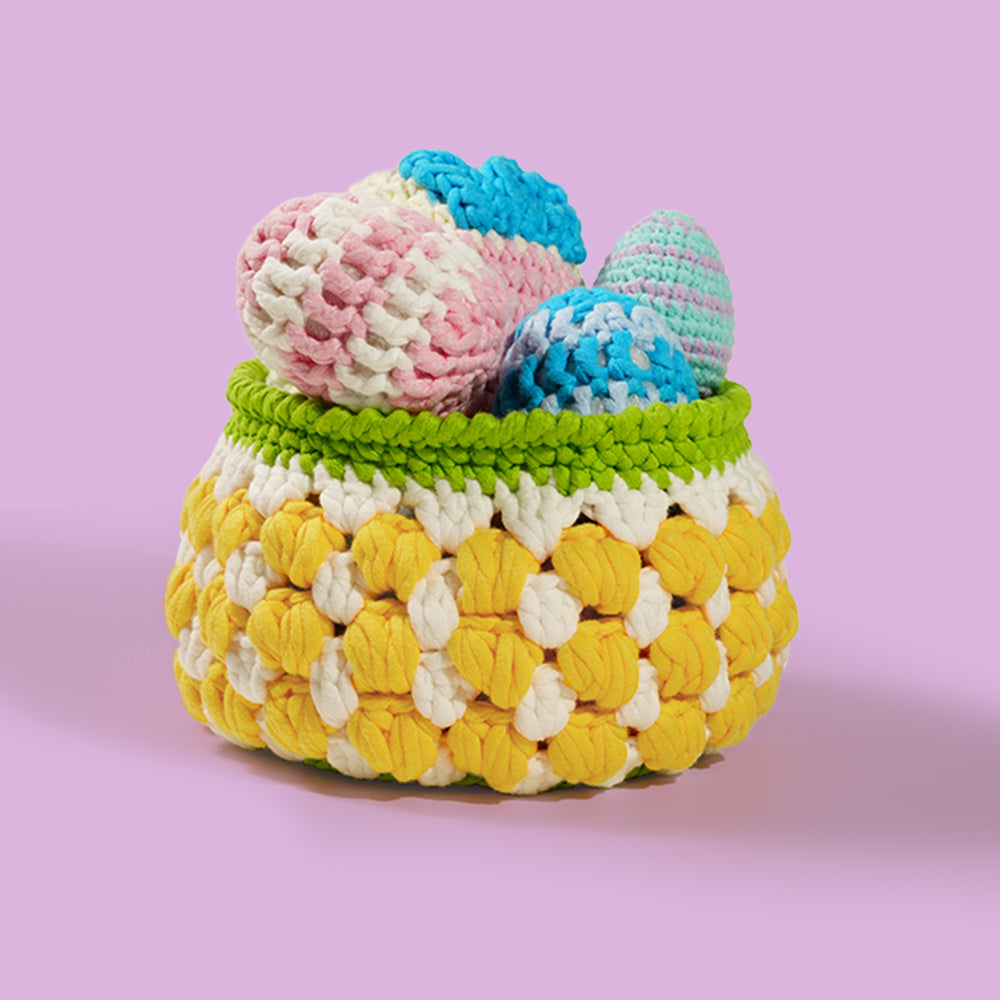Why Crochet Patterns Look Complicated (But Really Aren’t)
Introduction: It’s Not Just You
Ever looked at a crochet pattern and thought, “There’s no way I can figure this out”? You’re not alone. To beginners, those walls of abbreviations, stitch counts, and unfamiliar terms can feel like they’re written in a foreign language. And when you see a perfectly stitched animal or intricate bag on Pinterest, it’s easy to assume you need years of experience to pull it off.
But here’s the truth: most crochet patterns are far less complicated than they appear. In fact, many “advanced” projects are just clever combinations of the same few stitches you’ll find in any beginner kit. Once you learn how to read a pattern—and give yourself permission to go slow—you’ll realize it’s more about decoding than difficulty.

Why Patterns Look Scary at First
Let’s face it, crochet patterns have a branding problem. Between the abbreviations (sc, hdc, ch, sl st—what?), the formatting, and the occasional diagram or chart, they can look more like a spreadsheet than a creative project. Add in phrases like “turn your work” and “work in back loops only,” and you’ve got a recipe for panic.
But here’s a secret: most of those instructions are just shorthand for things your hands already know how to do. Once you learn to translate them, they become second nature.
Common pattern myths:
-
Myth 1: Complicated design = complicated technique
-
Myth 2: You must memorize everything before starting
-
Myth 3: If you don’t get it on the first try, you’re bad at crochet
None of these are true. Crochet is a forgiving craft, and there’s almost always room to try again (and again!).
It’s All About the Basics
Here’s something even seasoned crocheters will tell you: 90% of patterns use the same core stitches—chain, single crochet, double crochet, slip stitch. Even patterns that look advanced often just build on these basics.
Take an amigurumi animal, for example. It may look intricate, but most parts are made in continuous rounds of single crochet, increasing and decreasing as needed. No fancy stitches, no wizardry—just patience and repetition.
At Kynova, our kits are built around this philosophy. We believe that once you understand a handful of stitches and how to apply them, you can confidently take on just about any beginner-to-intermediate pattern.
Repetition is Your Friend
Crochet patterns aren’t linear like recipes—they’re rhythmic. Once you get the hang of a particular row or round, you often repeat that same motion over and over. That’s not a bug—it’s a feature!
Repetition helps:
-
Build muscle memory
-
Reduce the cognitive load (you can start to crochet while watching Netflix!)
-
Make your progress visible quickly
The real breakthrough often happens around your third or fourth project. Suddenly, the code cracks open, and you start seeing how everything connects.
How to Read a Pattern Without Overwhelm
Here’s your step-by-step beginner guide:
-
Start with the key
Most patterns include a legend explaining what each abbreviation means. Don’t skip it! -
Break it down row by row
Read only one row or round at a time. Don’t try to understand the whole pattern in advance. -
Use tools
Highlighters, sticky notes, and stitch markers are lifesavers for keeping track of your place. -
Watch a companion video
Many Kynova kits come with full video walkthroughs so you can watch each step before trying it yourself. -
Google is your friend
If you see a new term, look up a short demo. A 30-second video can clear up what 10 written lines can’t.
Real Beginner Story: Lucy and the Octopus
Lucy had never picked up a crochet hook before she tried Kynova’s octopus kit. At first, the pattern looked like a cryptic puzzle. But with the step-by-step video and some persistence, she found herself stitching in rounds, recognizing her increases, and even reading ahead in the pattern. By the end, she not only had a cute octopus but also the confidence to start her next project solo.
“I realized halfway through that I wasn’t ‘learning to crochet’ anymore—I was just crocheting,” she said.
Why a Good Starter Kit Makes All the Difference
A well-designed beginner crochet kit simplifies everything. Instead of guessing which yarn to use, where to insert your hook, or how to keep tension consistent, the kit walks you through the process.
Kynova kits include:
-
Soft, beginner-friendly yarn
-
Ergonomic hooks
-
Pre-recorded full-length video tutorials
-
Tools like stitch markers, safety eyes, and needles
-
A clear pdf pattern
With the hard parts taken care of, you’re free to focus on building your skills and enjoying the journey.
Final Tips: Don’t Chase Perfection
One of the biggest beginner traps is trying to make every stitch flawless. But guess what? Handmade means human-made. It’s okay if your first piece is a little lumpy or your circle turns out slightly oval. You’re still learning—and you’re making something with your own two hands.
Pro tip: Save your first few pieces. In a few months, you’ll be amazed by how far you’ve come.
Conclusion: You Can Do This
Crochet patterns may seem intimidating at first glance, but once you understand how to read them and take your time, they lose their power to scare you. Every expert crocheter started exactly where you are: confused, curious, and a little clumsy.
The key is to start—and to give yourself grace while you learn. With a supportive kit like the ones from Kynova, you won’t just survive your first pattern… you’ll thrive.
